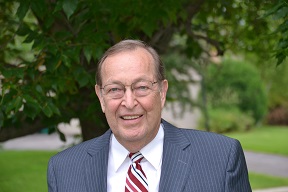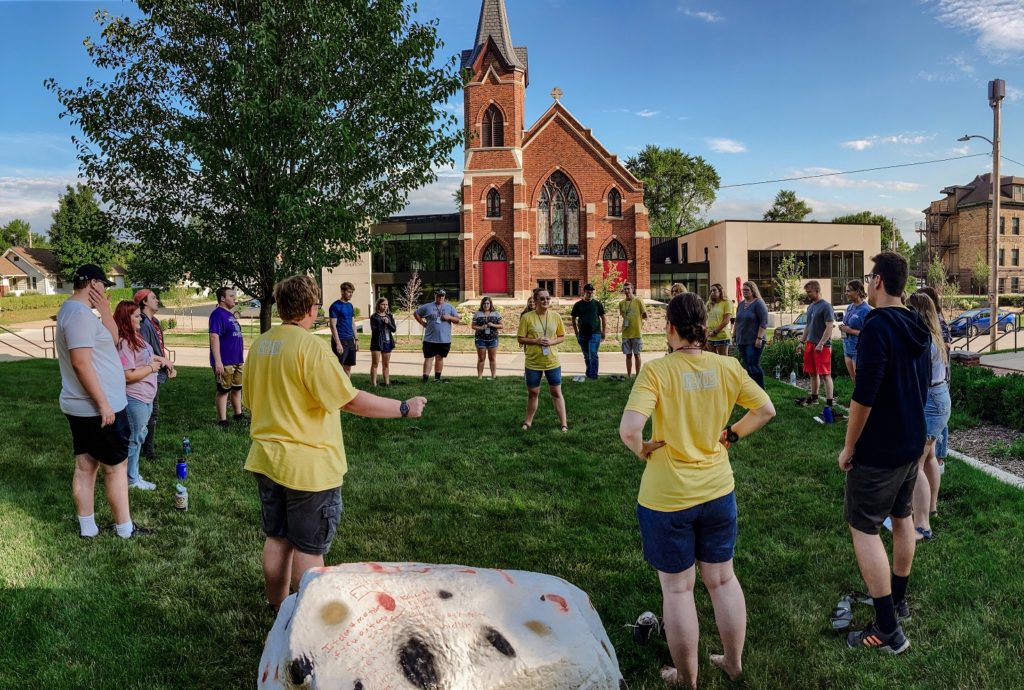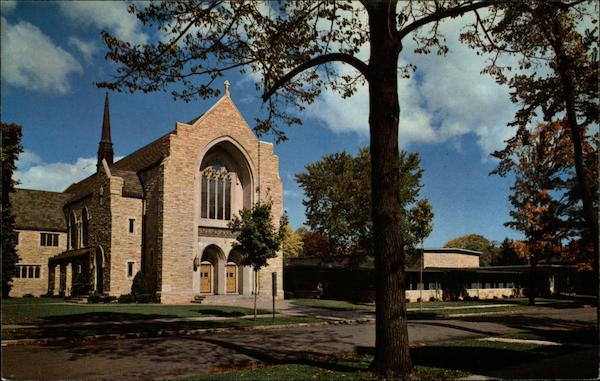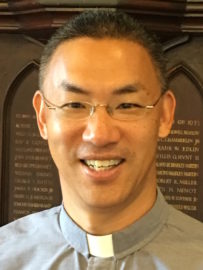Critical Race Theory (CRT) v. The Cross, Redemption, and Transformation, Part II

“Now before faith came, we were imprisoned and guarded under the law until faith would be revealed. Therefore the law was our disciplinarian until Christ came, so that we might be justified by faith. But now that faith has come, we are no longer subject to a disciplinarian, for in Christ Jesus you are all children of God through faith. As many of you as were baptized into Christ have clothed yourselves with Christ. There is no longer Jew or Greek, there is no longer slave or free, there is no longer male and female; for all of you are one in Christ Jesus. And if you belong to Christ, then you are Abraham’s offspring, heirs according to the promise.” (Galatians 3:23-29, NRSV)
Dear Brothers and Sisters in Christ —
The introduction of Critical Race Theory (CRT),into all segments of our culture, has created a massive outcry throughout our land because of its crushing and deceitful agenda; partly because it attempts to lure the general populace in — especially the most innocent among us, our children — through a dishonest narrative and then will unashamedly ambush and exploit its victims. But many are not taking the bait, and that populace is now waking up to such trickery! CRT is misleading and guises itself with different descriptive language to avoid naming itself for what it is, Critical Race Theory. It represents a wolf in sheep’s clothing (cf. Matthew 7:15) and a ‘hireling’ (cf. John 10:10-12) and will — in the end — morph into a new type of law which is controlling, vindictive, and even destructive. Thank you for allowing me to unpack further the juxtaposed distinctives between the philosophical ways and intent of CRT and the theological-biblical ways and intent of the Cross of Redemption and Transformation, specifically in light of Galatians 3:23-29.
As I shared in Part 1 of this article, Dr. Wyatt Tee Walker was one of Dr. Martin Luther King’s closest colleagues and advisers. Dr. Walker was a legendary key leader in the American Civil Rights Movement, having served as the Executive Director of the Southern Christian Leadership Conference in the tumultuous years of 1960-1964. Too, he was a co-founder of CORE (the Congress of Racial Equality), chief of staff to King, and King’s ‘field general’ in the organized resistance against notorious Birmingham safety commissioner “Bull” Connor, and so much more. He was with King for the March on Washington on August 28, 1963, that produced the “I Have a Dream” speech where King challenged ALL citizens of the United States of America for civil and economic rights and called for an end to racism. His work was not in vain!
Waking up to a new reality
Steve Kinsky says this about Dr. Walker, who co-authored an essay with him (“A Light Shines in Harlem,” September 24, 2015, RealClear Politics) regarding education reform and race relations. This is just part of what they wrote: “Today, too many ‘remedies’ — such as Critical Race Theory, the increasingly fashionable post-Marxist/postmodernist approach that analyzes society as institutional group power structures rather than on a spiritual or one-to-one human level — are taking us in the wrong direction: separating even elementary school children into explicit racial groups, and emphasizing differences instead of similarities. The answer is to go deeper than race, deeper than wealth, deeper than ethnic identity, deeper than gender. To teach ourselves to comprehend each person, not as a symbol of a group, but as a unique and special individual within a common context of shared humanity.” Their analysis of CRT was and is spot on, especially regarding our shared humanity. And, from our perspective as Christians, this “shared humanity” involves original sin and, ultimately, our great need for the Cross — The Cross of Redemption and Transformation, not CRT or any other such false narrative, pedagogy, or gospel! It’s been six years since the publication of the Kinsky-Walker article, and now thousands upon thousands of parents are witnessing first-hand how some public schools are shaming, harassing, confusing and often brainwashing their precious children, often pitting child against parent (cf. Luke 12:51-53)! In other words, mothers and fathers do know better than the largely compromised system of public school education on what is best for their children and what they should be taught! Many parents are waking up to the problems and underlying deceit of CRT. They are now quickly discovering that it is weighty, cumbersome, disorienting, and massively intrusive. It is an illegitimate ‘disciplinarian,’ without any sense of grace or mercy. Law without Gospel. (Perhaps) without knowing so, they are gaining strength through Galatians 3:25 — “But now that faith has come, we are no longer subject to a disciplinarian, for in Christ Jesus you are all children of God through faith.” Reflect just a moment on the fullness of this one verse and how it speaks volumes on the acute errors of CRT.
Recently, the state of Virginia became the epicenter of intense debate over CRT — a veritable spiritual battleground for the soul of the next generation of Virginians. The decisive outcome of the vote for the next governor of Virginia (and many other key public servants) reflected a complete repudiation of not only CRT but other radical agendas. So, why such a dramatic voting shift in the opposite direction? I strongly believe it was not because the citizens of Virginia suddenly wanted to support “white supremacy” (as the mainstream media purports, along with other vicious comments) but, instead, they were intuitively aware of the overwhelming and insufferable nature of CRT. To speak plainly, folks in general are fed up with hearing such hateful and racist rhetoric being spewed towards fellow human beings. Virginians, and many Americans, have been experiencing a ‘foretaste’ of how a new type of ‘guiding principles’ — law — might transpire and begin to dictate what is right and wrong, and how it could literally upend our nation as we know it. Good people are upset and voted accordingly. They love their children and their children’s children. Mama Bear has been poked and has now awakened!
A word from Galatians 3:23-29 — There is NO distinction
In light of the headline passage from Galatians 3:24-29 above, we celebrate that Christ has come and that the world, potentially, has been and can be set free: “Therefore the law was our disciplinarian until Christ came, so that we might be justified by faith.” (v. 24) In this verse, the Greek word for disciplinarian is παιδαγωγὸς/paidagōgos which translates as trainer, a tutor, not only a teacher but one who had charge of the life and morals of the boys of a family. He was a legally appointed overseer, authorized to train (bring) up a child by administering discipline, chastisement, and instruction, i.e., doing what was necessary to promote development. In our present-day public ‘schooling’ environment, we entrust our children with teachers — whom we have authorized — to train and ‘bring them up’ in particular ways. But now that environment has radically changed and the disciplinarians are those we have NOT authorized, those carrying the CRT teaching. As Christian parents, our identity and authority rests in Christ and Christ alone. It is upon that foundation we claim Christ as our final disciplinarian. I believe this is what people genuinely desire. Christ did not come as a cruel and condemning taskmaster but as Saviour (John 3:17). We are no longer subject to a disciplinarian and under the law (Galatians 3:25; 5:18), for in Christ Jesus we are all children of God through faith (Galatians 3:26). Apart from Christ, the <Mosaic> law can quickly become burdensome and even deadly. In 2 Corinthians 3:6, Paul writes: “He has made us competent as ministers of a new covenant — not of the letter but of the Spirit; for the letter kills, but the Spirit gives life.” Of course, the Law of Moses, a grouping of books (Torah) or “letter/s”, was a series of writings to regulate moral and civil actions telling people what they could and could not do; but, too, they were instructions on how to live in the land; i.e., in Deuteronomy 8:1-“All the commandments that I am commanding you today you shall be careful to do, that you may live and multiply …”, Psalm 119:1-“Blessed are those whose way is blameless, who walk in the law of the Lord!”, and dozens of other biblical references. As the cloud of confusion is lifting, it’s becoming clear that those behind CRT are bent on writing their own “series of writings to regulate moral and civil actions telling people” what they can and cannot do, hoping to remove and replace the traditional role of parents serving as the primary disciplinarian … and, especially the parents who place their faith, ultimately, in Jesus Christ as their disciplinarian, not CRT.
“Now before faith came, we were imprisoned and guarded under the law until faith would be revealed” (Galatians 3:23) Luther had profound insight regarding “the law” apart from faith, specifically in light of this verse: “The Law is a prison to those who have not as yet obtained grace. No prisoner enjoys the confinement. He hates it. If he could he would smash the prison and find his freedom at all costs. As long as he stays in prison he refrains from evil deeds. Not because he wants to, but because he has to … But the Law is also a spiritual prison, a veritable hell. When the Law begins to threaten a person to death and the eternal wrath of God, a man just cannot find any comfort at all. He cannot shake off at will the nightmare of terror which the Law stirs up in his conscience.” Any law, even the Mosaic Law, will lead to bondage. By now, I think you understand that I am not comparing CRT to the Mosaic Law but only suggesting that CRT is becoming law, except without God involved in any way, shape, or form. Through the implementation of CRT, the State/Government desires to become the schoolmaster, the custodian, the guardian, and the disciplinarian. Again, with the State, there may be no grace, no freedom, nothing but confinement indeed. (Project Wittenberg, Commentary on the Epistle to the Galatians, 1535 by Martin Luther/trans. by Theodore Graebner, Chapter 3, pp. 135-149, Galatians 3:20-29, Grand Rapids, Michigan: Zondervan Publishing House, 1949)
The other obvious problem with CRT is how it automatically marks and makes a distinction with people groups through a hodgepodge of terminology. For instance, it regularly employs the label ‘white privilege,’ typically defined as a “concept that highlights the unfair societal advantages that white people have over non-white people. It is something that is pervasive throughout society and exists in all of the major systems and institutions that operate in society, as well as on an interpersonal level.” (“What Is White Privilege” by Arlin Cuncic, updated on August 25, 2020) At least a part of this particular definition, along with the rest of the noted article, kind of makes sense but then breaks down quickly when left as absolute fact/law without grace and mercy; and, especially, if not filtered through the heart and mind of Christ and His redemptive and transformative work at the Cross. From Galatians 3:28 we read, “There is no longer Jew or Greek, there is no longer slave or free, there is no longer male and female; for ALL of you are one in Christ Jesus.” There is no distinction!
Walter Myers III, who is the Principal Engineering Manager at Microsoft Corporation in Irvine, CA, holds a master’s degree in Philosophy from Biola University’s Talbot School of Theology, and is a member of the Advisory Board for the California Policy Center (CPC), recently wrote a fascinating piece on CRT. This is how he concludes his essay: “How will we ever find peace among the races if we can’t look at each other as individuals, person to person, based on actual facts and intentions? We simply cannot reconcile as a people if we allow ourselves to be judged by the ethnic, race, and gender essentialism of Marxist-style power groups, and thus we should reject CRT … Indeed, America has had a long and horrific period of chattel slavery followed by Jim Crow and racial codes that persisted well into the 1960s and 70s. But these practices ended as more Americans understood the gross violations of the U.S. Constitution and Declaration of Independence. As a black man, I have seen tremendous progress over my lifetime, and while I’m cognizant racism will always exist, simply because evil will always exist, the only systematic oppression I see currently is the failure of public-school systems across America to prepare black and brown children for future economic success. It is the greatest tragedy of our time. And what is abundantly clear is CRT does nothing to advance the basic mission of K-12 education, while doing much to detract from it.” (Discovery Institute, American Center for Transforming Education, “Critical Race Theory — The Marxist Trojan Horse”) Certainly, CRT is becoming more than a distraction. Its disciplinarians are hoping to steal away the hearts and minds of our children. Jesus Christ, our disciplinarian, has set us free through His blood of redemption and transformation.
What the world needs now is HESED — Steadfast Mercy!
Our hope lies in this Word from Galatians 3:23-25, notably as it speaks on our freedom in Christ: “Therefore the law was our disciplinarian until Christ came, so that we might be justified by faith. But now that faith has come, we are no longer subject to a disciplinarian, for in Christ Jesus you are all children of God through faith.” Throughout the history of the People of God (the Israelites), it was imperative that they remain ‘dependent’ upon the continual and merciful intervention of God. This ongoing and unfailing mercy of God was and is known as God’s Hesed; otherwise, they were lost and would die. Hesed is a Hebrew word almost beyond description, even pushing the boundaries of our comprehension. Hesed kept the law in balance. Apart from the “Hesed”/חֶסֶד of the Lord God YHWH — the completely undeserved, unconditional, loving kindness and mercy of God (named over 245 times in the Old Testament), the Mosaic Law could breed guilt and harshly assign punishments for violating the law, even issuing death sentences to offenders with seemingly very little — if any — grace and mercy attached to it. Of course, this Law was “only a shadow” of what <was> to come … “the substance <belonging> to Christ” (Colossians 2:17). As a stiff-necked people with very clayish feet, we are always tempted to fall back into the law, any law … even a law of lawlessness, especially when we drift from Hesed … the completely undeserved, unconditional, loving kindness and mercy of God. And now, of course, we have been set free! Here’s the incredibly Good News — this ‘hesedness’ was eventually fulfilled in the Incarnation of God, the Father, in Jesus Christ! We can now be proclaimers of such mercy and breathe life into our world, no matter what we face. We can’t say it enough: What the world needs now is mercy, especially revealed fully in Jesus. And, of course, we’ve been called to communicate this message of mercy, and shout it from the rooftops (cf. Matthew 10:27) — MERCY! If we don’t, others WILL fill that void with a counterfeit form of mercy — like CRT! Do you see what’s happening?
Unlike the present-day “law of the land,” aptly described in our primary “letters,” the Constitution/Bill of Rights and Declaration of Independence, CRT has no grounding in a Judeo-Christian God. In the end, it is god-less. It has no biblical understanding of Hesed or Mercy. Because of the God-void in every human heart, CRT has created this false narrative in trying to communicate mercy. It answers only to itself, thus “keeping us subject to a disciplinarian” and “under the law” (Galatians 3:23 & 25). I believe this terrible reality is exactly what our nation has been experiencing without being able to name it, an intuitive sense that something is not right. What our country — the world — needs now, more than anything else, is Hesedness, the Lord’s steadfast and unfailing Mercy, not a pseudo-mercy that is, in the end, merciless.
We all understand that the Cross lies at the very heart of the Christian faith, and without the Cross we have no faith at all. What took place at Golgotha was the single most important event in all of history — it was the central event of the human race. And, herein, lies the inherent flaw and great deceit/lie of CRT. Where there is no mercy with CRT, the Cross exudes Mercy. In Part I of this article, I clearly articulated that racism is a reality. It is dreadfully sad and awful, and damages each of our souls. In Walter Myers III words, “… while I’m cognizant racism will always exist, simply because evil will always exist, the only systematic oppression I see currently is the failure of public-school systems across America to prepare black and brown children for future economic success … And what is abundantly clear is CRT does nothing to advance the basic mission of K-12 education …”
In the end, for all of us, this life is all about pursuing and proclaiming the steadfast love and mercy of Jesus Christ and Him alone. There is a harvest of folks (cf. Matthew 9:35-38), including many of the so-called CRT proponents, who have not yet tasted such a mercy. Let us consider how we can effectively and faithfully engage in such a challenge. In the final installment of this article, Part III, I hope to raise two simple, logical and rationale questions: What is the end-game/purpose of CRT? And what was/is the end-game/purpose of Calvary? Until next time, stay the course …
In His Immeasurable Love and Mercy,
K. Craig Moorman
Mission Developer/Pastor of River’s Edge Ministries/NALC-LCMC
Mt. Airy, Maryland






























 for doing this month’s video review. Dr. Lee is the pastor of Prince of Peace Lutheran Church in Santa Barbara, California (NALC), a lecturer in theology for the North American Lutheran Seminary, and a member of the NALC’s Commission on Theology and Doctrine. His review is about the book, Loci Communes (1521) by Philip Melanchthon. A link to his review can be found
for doing this month’s video review. Dr. Lee is the pastor of Prince of Peace Lutheran Church in Santa Barbara, California (NALC), a lecturer in theology for the North American Lutheran Seminary, and a member of the NALC’s Commission on Theology and Doctrine. His review is about the book, Loci Communes (1521) by Philip Melanchthon. A link to his review can be found